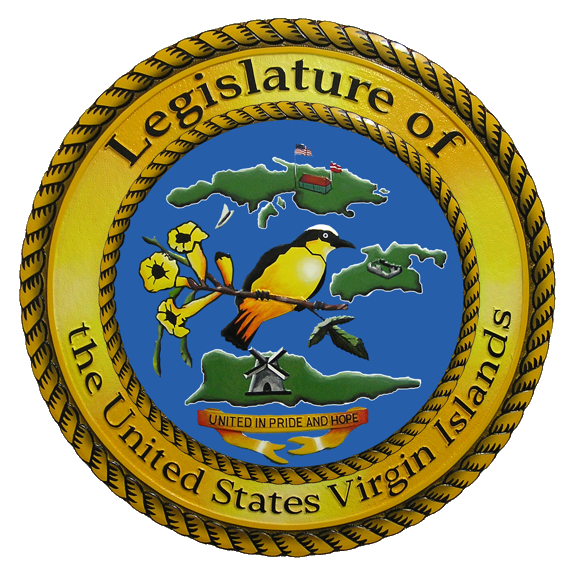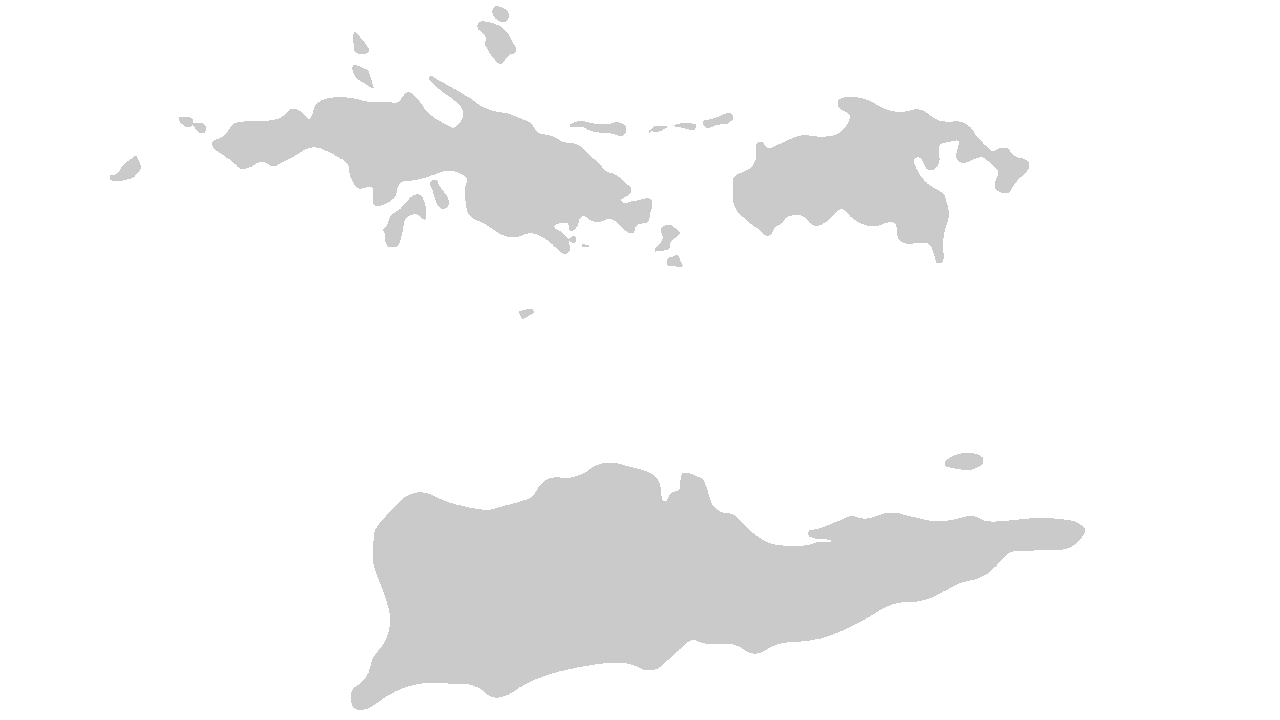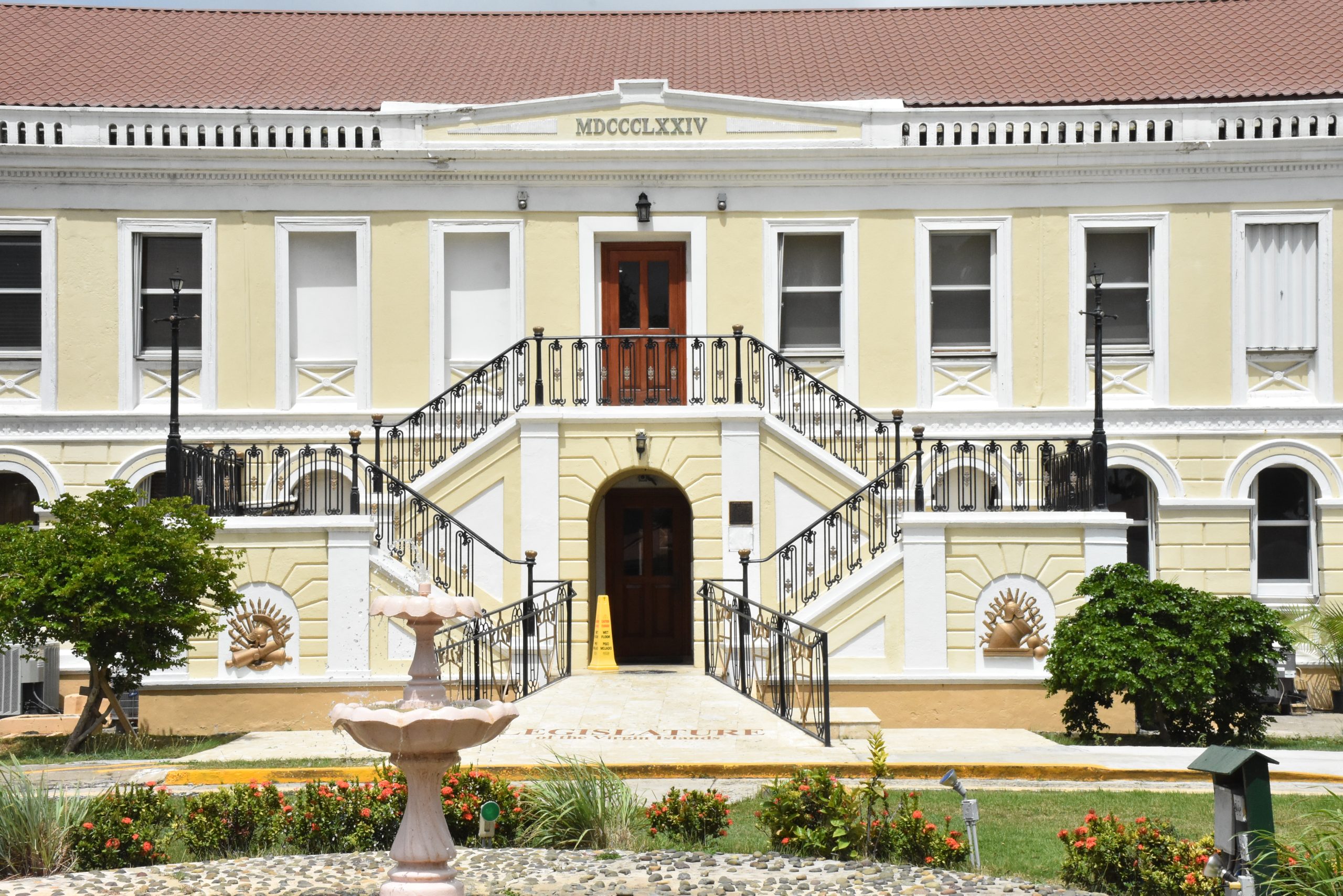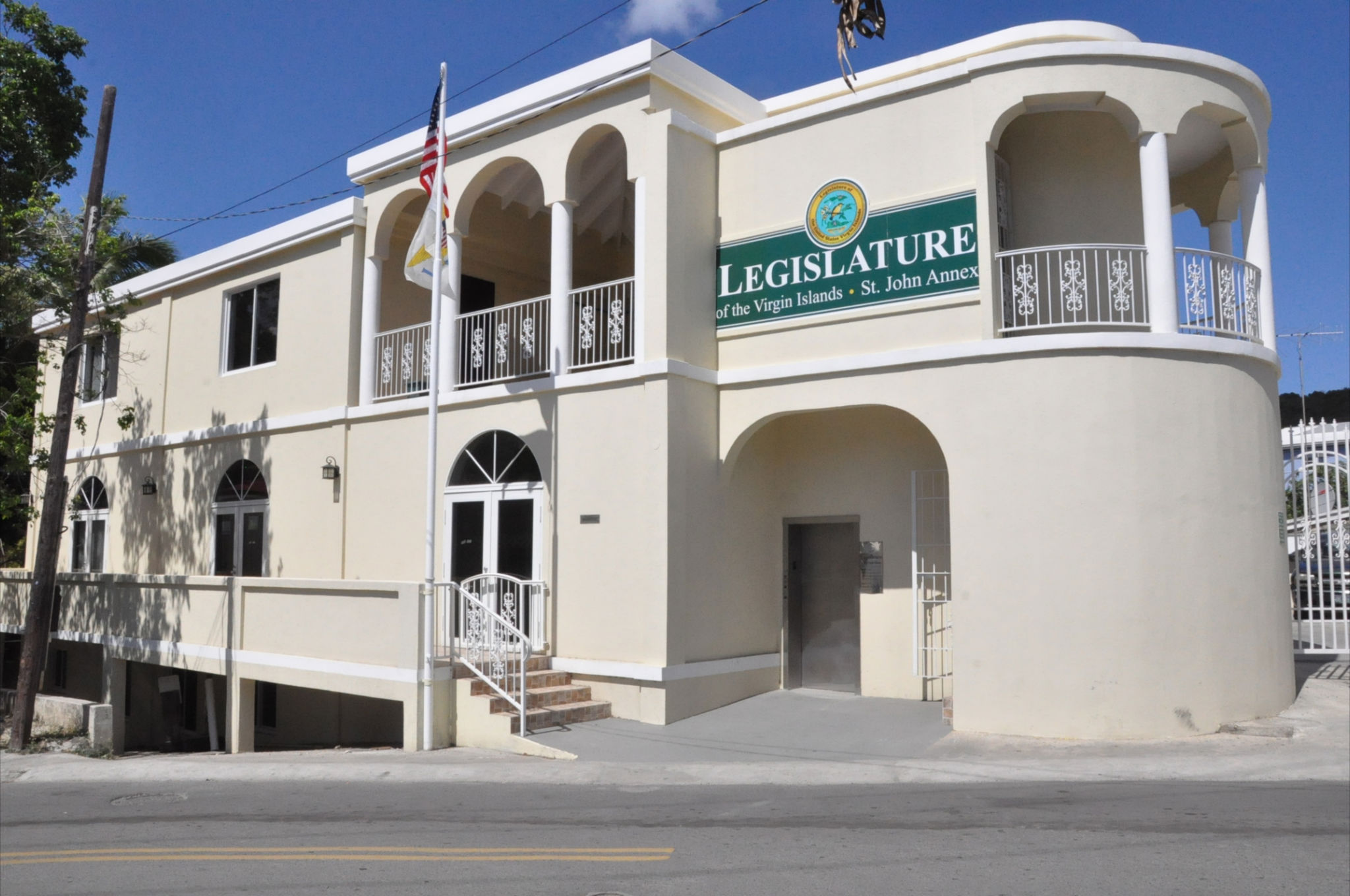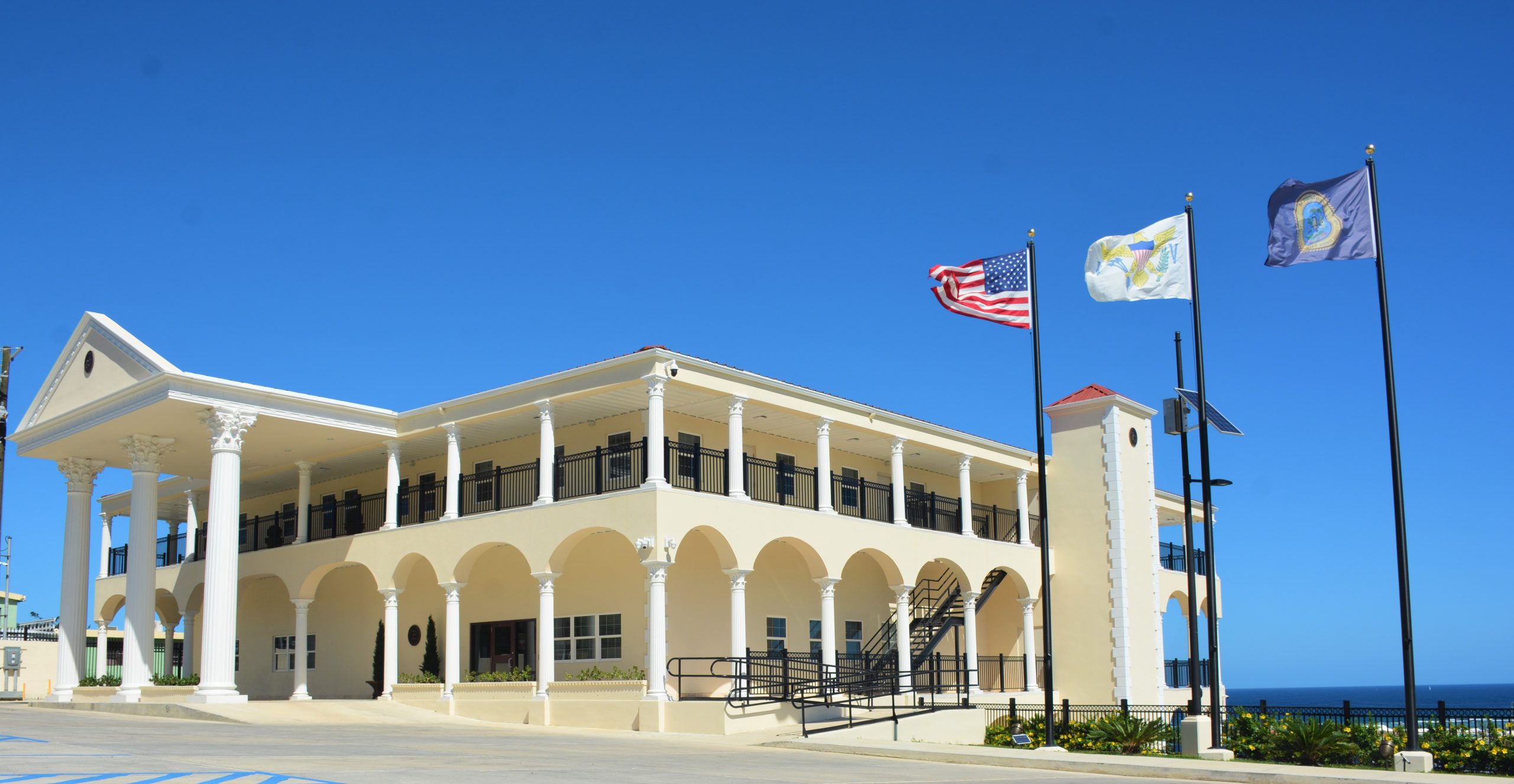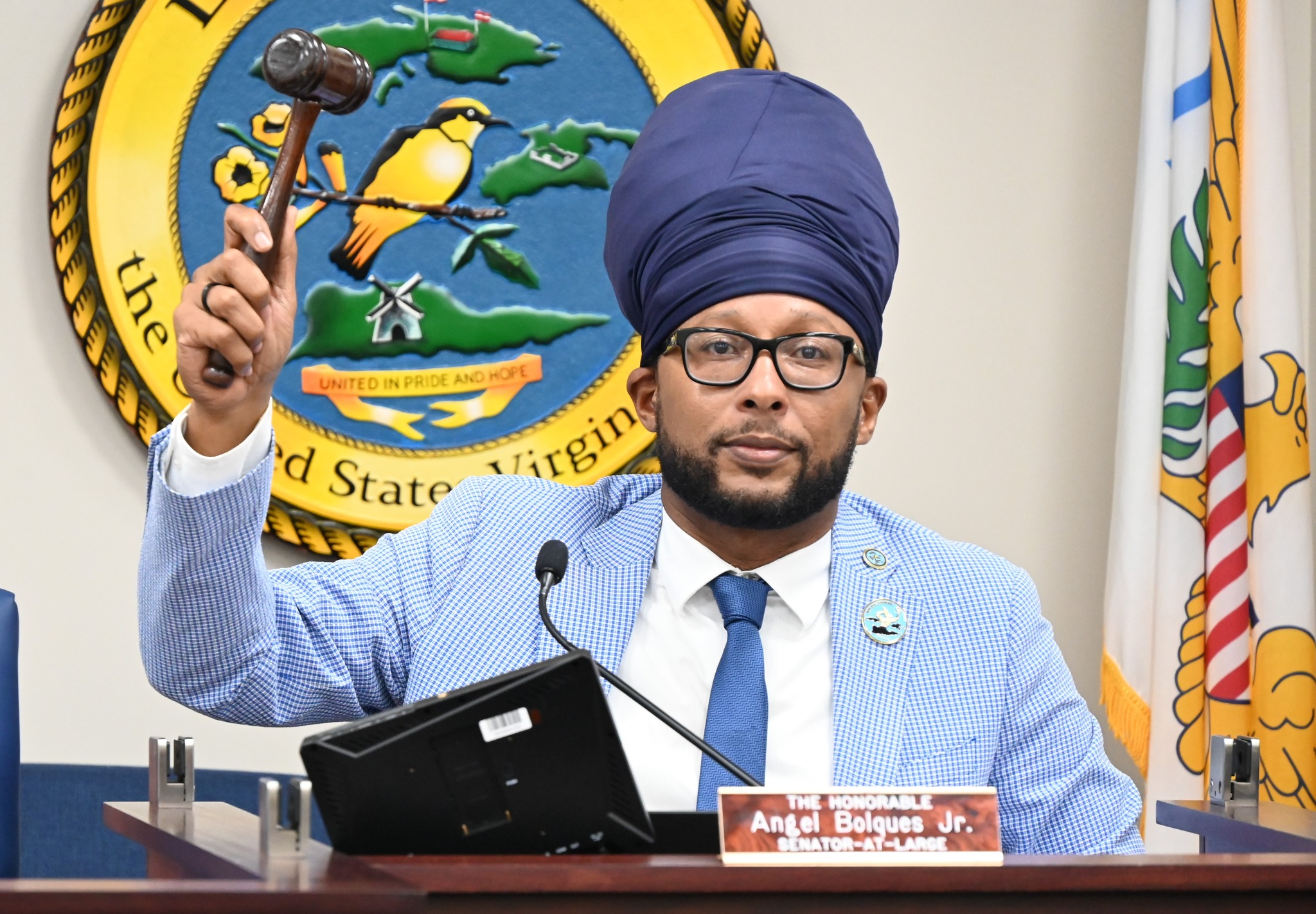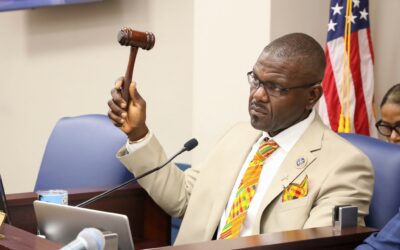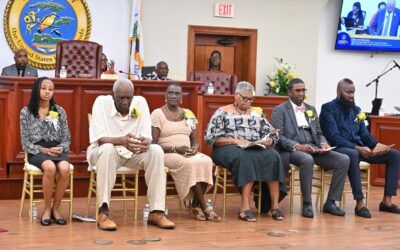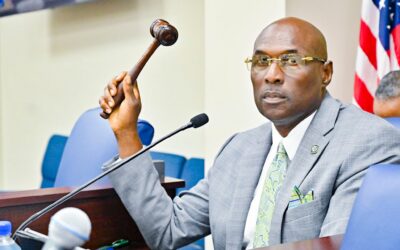ST. CROIX – The 35th Legislature of the Virgin Islands’ Committee on Culture, Youth, Aging, Sports, and Parks, led by Senator Angel L. Bolques, Jr. convened at the Frits E. Lawaetz Conference Room. The Committee heard testimonies and updates focusing on Children’s museums in the Virgin Islands, discussing their operations, achievements, and challenges, while highlighting their role in community engagement and cultural enrichment. Additionally, the Committee heard testimony concerning aging and disability compliance and rights in the Virgin Islands.
In Block 1, lawmakers heard testimony focusing on examining the accomplishments, challenges, and significance of Children’s Museum’s in the Virgin Islands.
Ellie Hirish, President of the Children’s Museum of St. Croix delivered testimony. The Children’s Museum of St. Croix is a 501c-3 nonprofit organization that is operated solely by a Board of volunteers. The Children’s Museum is a hands-on museum that is intended for children to interact with displays and manipulate materials. The Children’s Museum of St. Croix originally began as a “pop up museum,” beginning at the 2017 Virgin Islands Agricultural and Food Fair. The museum originally used four hundred square feet activities under a tent. This has since expanded to 3,000 square feet of activities under a tent the previous two agricultural fairs. During the last two agricultural fairs, approximately five hundred children attended. The Children’s Museum has been able to incorporate social and cooperative activities that encourage children to develop social skills. The museum is currently anticipating establishing a permanent home, one that would allow the museum to further its mission. Establishing a space would allow the museum to set up technology that would not be available at pop up events. Without dedicated space, the museum has been forced to rent space to hold events. Hirish reminded the body that the greatest challenge that it faced was funding, stating that it needed funding to provide learning opportunities for children and families.
Chantel Hoheb, Executive Director of the Virgin Islands Children’s Museum delivered additional testimony. The Virgin Islands Children’s Museum was founded in 2015. It opened its first location in the Grand Galleria building in Charlotte Amalie in 2016. The building was severely damaged after Hurricanes Irma and Maria in September 2017. An interim location was established in the Buccaneer Mall in 2017. The museum moved into its permanent location in the Buccaneer Mall in 2019. The museum temporarily closed in April 2020 due the COVID-19 Pandemic. It reopened in October 2020. The museum currently hosts 3,000 square feet of exhibit space, consisting of STREAM (Science, Technology, Reading, Engineering, Arts, and Humanities) based interactive exhibits. The museum highlights exhibits highlighting and celebrating Caribbean and Virgin Islander culture, people, places, and local natural resources. The museum has survived mainly on corporate contributions and has continued to advocate for additional funding. The operating budget for the museum was approximately $500,000, with the majority of it going to rent, utilities, staffing, insurances, and other operation expenses. The museum was included in the Executive Budget of the Virgin Islands for the First time in the 2024 Executive Budget. The museum has surpassed its previous year’s visitor numbers, welcoming 11,494 people from January to October 2023.
In Block 2, lawmakers heard testimony evaluating the current state of disability compliance and the rights of individuals with disabilities in the Virgin Islands.
Testimony was read into the record from Angus Drigo, Executive Director of the Disability Rights Center of the Virgin Islands. DRCVI has two offices in the US Virgin Islands. The primary office is located in Frederiksted, with a satellite office in St. Thomas. It has an eleven-member staff that includes three full-time lawyers/advocates. In Drigo’s testimony, it is mentioned that the Virgin Islands has failed to comply with the Americans with Disabilities Act (ADA) as amended. ADA Compliance has fallen short, particularly when it comes to access to government offices, playground areas, businesses, and shopping districts, especially those in downtown areas. Examples of this noncompliance include wheelchair ramps that are not wide enough for those who use wheelchairs, electrical poles, or lamps in the middle of sidewalks which make wheelchair access difficult, and decorative cobblestones, which also prohibit wheelchair and walker accessibility. DRCVI has also advocated for jet bridges in the territory, for easier travel access for the disabled. Behavioral health has been one of the most challenging issues and the organization continues to advocate for better access to mental health services. DRCVI sued the VI government in 2003 to recognize the rights of all residents of access to comprehensive mental health services. DRCVI won the case, and a state plan was developed in 2009. However, full implementation has yet to occur.
Julien Henley, the ADA Coordinator of the Virgin Islands delivered testimony. Per Henley’s testimony, approximately 12.4% of every household in the US Virgin Islands has at least one person with a disability. This averages about 8,000 citizens in the territory. Henley stated that all government departments are physically accessible, allowing those with mobility disabilities to receive services. Henley mentioned that he was working closely with VITEMA, the Department of Health, the Department of Human Services, and other agencies to confirm that shelters are accessible and ADA complaint. According to Henley, service animals have been a major topic. The ADA offices have fielded complaints and inquiries about services animals, stating that many do not understand the ADA law and how to differentiate between service animals, comfort animals, and emotional support animals. Henley voiced the need to properly educate the public on the difference with the animals. There have been technologies that are available to help the disabled community increase their quality of life. For example, the Department of Motor Vehicles has recently launched a Deaf/Hard of Hearing Communication Accommodation Visor Card, which can be recognized easily by law enforcement to bridge communication gaps between law enforcement and heard of hearing/deaf drivers. Additionally, a system called Virtual Remote Interpreting has the ability to communicate in American Sign Language with clients who are deaf or heard of hearing through an on-screen interpreter.
Monique Bute, the Executive Director of the Virgin Islands Association for Independent Living, Inc delivered testimony. The Virgin Islands Association for Independent Living services as a nonprofit organization that enables those with disabilities the ability to live an independent lifestyle within the community. There are two locations, one located on St. Thomas at the Wheatley Center and one on St. Croix at the Sion Farm Shopping Center. Mandates of the agency include that 50%+1 of its staff, and its board members be comprised of those with disabilities. The organization seeks to help those with disabilities gain independent living skills such as cooking, self-esteem, self-confidence, budgeting, and decision-making skills. It also works to provide peer to peer counseling, information and referrals to applicable services, advocacy, and transitional services. Bute reminded the body that it was a small nonprofit that receives funding from the Department of Human Services through a grant of $100,000 with federal funds of $256,202. It is still owed $100,000 from the local government. It has previously requested a funding increase but has been denied. The agency mentioned that at least $300,000 more a year would be needed to properly operate.
Yvonne Petersen, Executive Director of Beyond Visions Foundation, the Virgin Islands Developmental Disabilities Council, Inc. (VIDDC) and the VI Family2Family Network, Inc delivered testimony. Beyond Visions Foundation serves as the Family-to-Family Health Information Center for the US Virgin Islands. It is a federally funded program through the Health Resources and Services Administration. Family Voices, USVI Partnered with BWF and the VIDDC to conduct community outreach, provide training for parents to become parent navigators, conduct capacity building for parent/caregiver-led organizations, health professionals and workers that serve or engage families of children and youth with special healthcare needs. Issues of concern for the agencies include assisting in addressing the need of high rate of diabetes in the territory, assisting with capacity building, training, and community outreach to help those with sickle cell or sickle cell trait, providing support for genetic counseling community outreach upcoming activities, and promoting newborn screening for the various populations, including those with language and ethnic barriers in the VI. Petersen stated that the agency needed more funding, as federal funds were not intended to provide the total cost of conducting the programs. She stated that they would request a 50-50 match territory wide. Additionally, the USVI is the only area that does not currently comply with the Developmental Disabilities and Bill of Rights Act of 2000. Funds from the DD Act are intended to fund independent State Councils on Developmental disabilities in states and territories. The Virgin Islands, however, requests these funds and are received by the Department of Human Services through their Consolidated Block Grant. The VIDD council receives no DD act federal funding.
Senators present at today’s committee hearing included Angel L. Bolques, Jr., Marvin A Blyden, Samuel Carrion, Alma Francis Heyliger, Novelle E. Francis, Jr., and Franklin D. Johnson. Senator Milton E. Potter was excused.
The Division of Public Affairs is committed to providing the community with accurate information on legislative proceedings and other events at the Legislature of the Virgin Islands.
####
